On March 9, 2024, the Miss World 2023 pageant was held to choose a beauty queen once again. The crown went to Krystyna Pyszková of the Czech Republic. To honor this event, we decided to take a look at the history of the contest and find out how the jury’s approach to assessing women’s beauty has changed over the decades.
1950s: it all started with a scandal.

Kiki Håkansson (Sweden), Miss World 1951
In 1951, as part of the Festival of Britain, the Festival Bikini Contest was held, which journalists later named Miss World. This event became a scandal because in those days a bikini was considered indecent.
Swedish beauty Kikki Håkansson became the winner of this first pageant. And to this day, she remains the only winner to have received her crown while wearing a bikini. Later, the finalists would wear a one-piece swimsuit or evening gown to the awards ceremony.

Denise Perrier (France), Miss World 1953, and Marita Lindahl (Finland), Miss World 1957
Despite the 1951 bikini scandal, the contest founder Eric Morley was pleased with the public attention and decided to hold the pageant annually. His requirements for potential participants were as follows: single women without children aged 17 to 27.
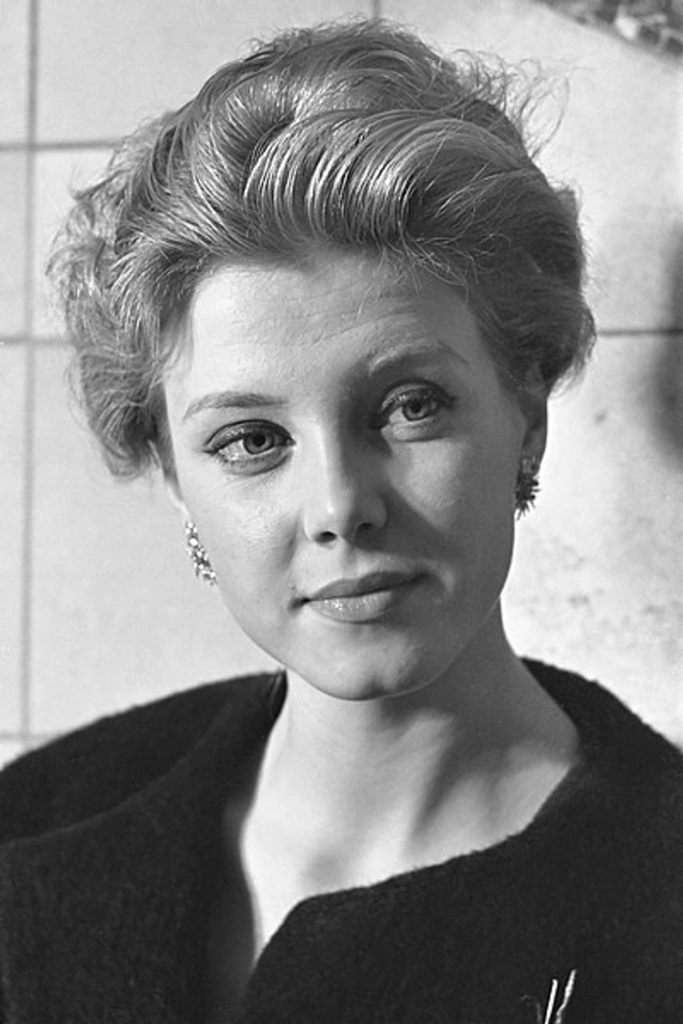
Corine Rottschäfer (Netherlands), Miss World 1959
In 1959, a major British television channel agreed to broadcast the pageant, thus making it even more popular. Corine Rottschäfer found herself in a delicate situation before the awarding ceremony when she discovered that her evening gown had holes in it. Another contestant lent Corine the dress and eventually finished third, while Corine became the winner.
1960s: Miss World is gaining momentum.

Katharina Lodders (Netherlands), Miss World 1962
In the 1960s, the Miss World pageant became one of the most watched television shows. The cash prize for the winner was increased from £500 to £2,500. In 1961, the requirements for contestants were also changed: the upper age limit was now 25 years old.
Katharina Lodders, who was crowned in 1962, addressed these criteria in her own way. On collecting the award, she said out loud, «I don’t think I’m the most beautiful girl in the world — I am the most beautiful girl here.»

Ann Sidney (Great Britain), Miss World 1964
In 1964, the winner was Ann Sidney, who later made a career in the movie industry. By the way, Morley introduced a new rule that same year: he forbade the mothers of contestants to accompany their daughters. The reason why was because the mother of one of the girls caused a lot of inconvenience to the organizers, getting involved in their work.
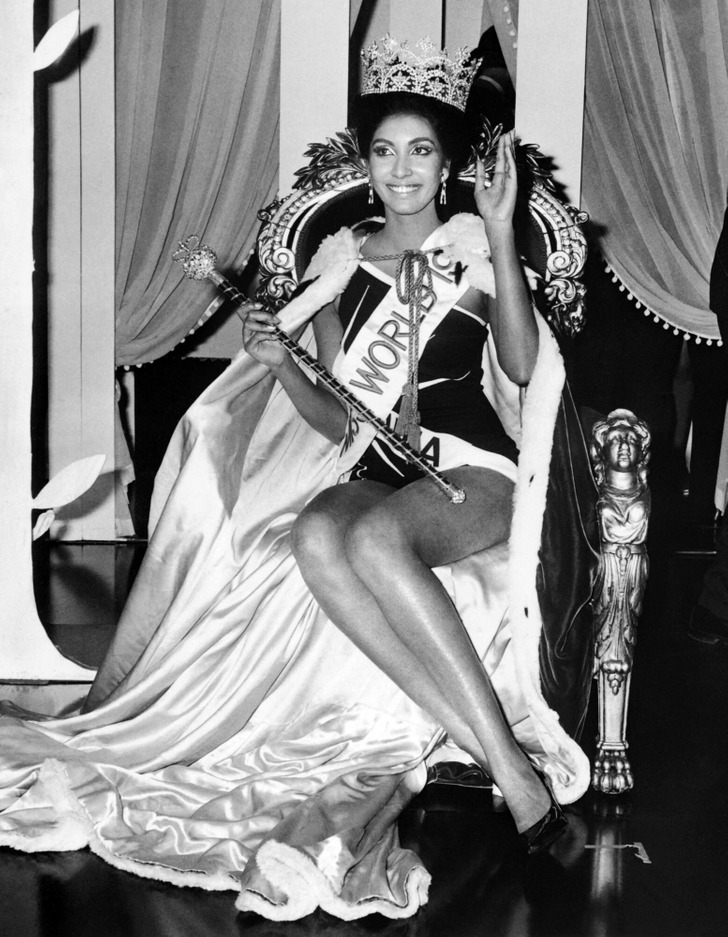
Reita Faria (India), Miss World 1966
In the late 1960s, the contest became even bigger. In 1966, Morley sent invitations to more than 70 countries, 66 of which were happy to respond. And in 1968, for the first time in the history of the event, a married girl was allowed to participate. In the 1970s, however, a strict criterion for the marital status of contestants was reintroduced: single only, period.
1970s: feminists change the essence of the pageant.
Jennifer Hosten (Grenada), Miss World 1970
The beginning of the decade was marked by a new scandal. In 1970, a week before the pageant, British feminists claimed that Miss World objectified women and threatened to interrupt the show. And they did it. When the event was in full swing, some female guests rose from their seats and began to blow whistles, jingle rattles and shout slogans. Later, the movie Misbehaviour starring Keira Knightley was based on these events.
In 1970, Jennifer Hosten won the crown. She became the first black woman to win it.
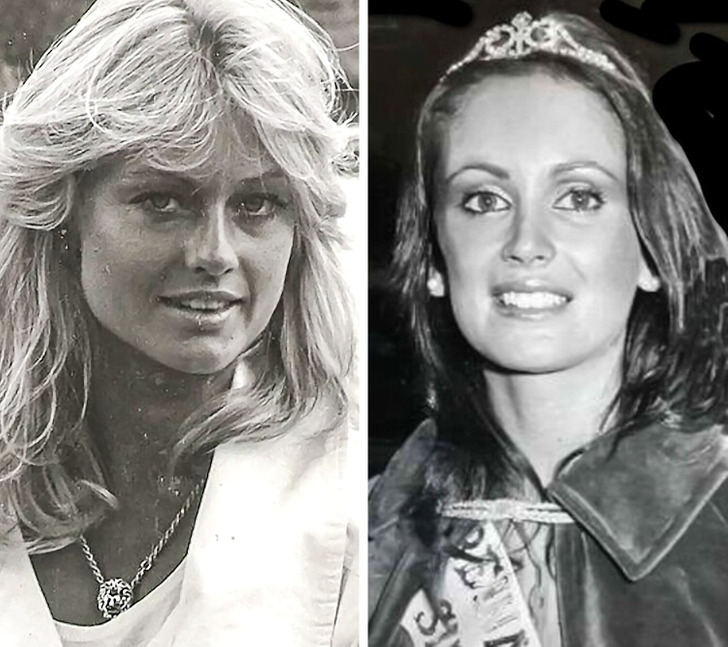
Marie Stävin (Sweden), Miss World 1977, and Silvana Suárez (Argentina), Miss World 1978
The conflict with feminists forced the organizers to think about the message the pageant was sending to the world. And in 1972, Eric Morley and his wife announced that the event would now be held under the slogan «Beauty With a Purpose.» The contestants were also required to present their charity projects to the jury.
1980s: «Beauty With a Purpose»
Mariasela Álvarez (Dominican Republic), Miss World 1982
In the 1980s, the slogan «Beauty With a Purpose» got another meaning: new tests of intelligence and personality were added to the contest program. In the eyes of the judges, the contestants’ personal qualities became as important as their looks.
Giselle Laronde (Trinidad and Tobago), Miss World 1986
In the second half of the decade, the contest became criticized again. The public in different countries didn’t like the fact that girls were judged only by representatives of Western countries. And in 1986, Morley decided to hold the preliminaries of the contest in Macau and give the Eastern judges the opportunity to select the contestants. The winner that year was Giselle Laronde from Trinidad and Tobago. This was the first time a representative of this country won the crown.
Ulla Weigerstorfer (Austria), Miss World 1987
And in 1987, the organizers ignored their own rule that allowed to participate girls aged only 17 to 25 and let a 26-year-old beauty to compete for the crown. Later, the upper age limit would be made 27 again.
1990s: crisis
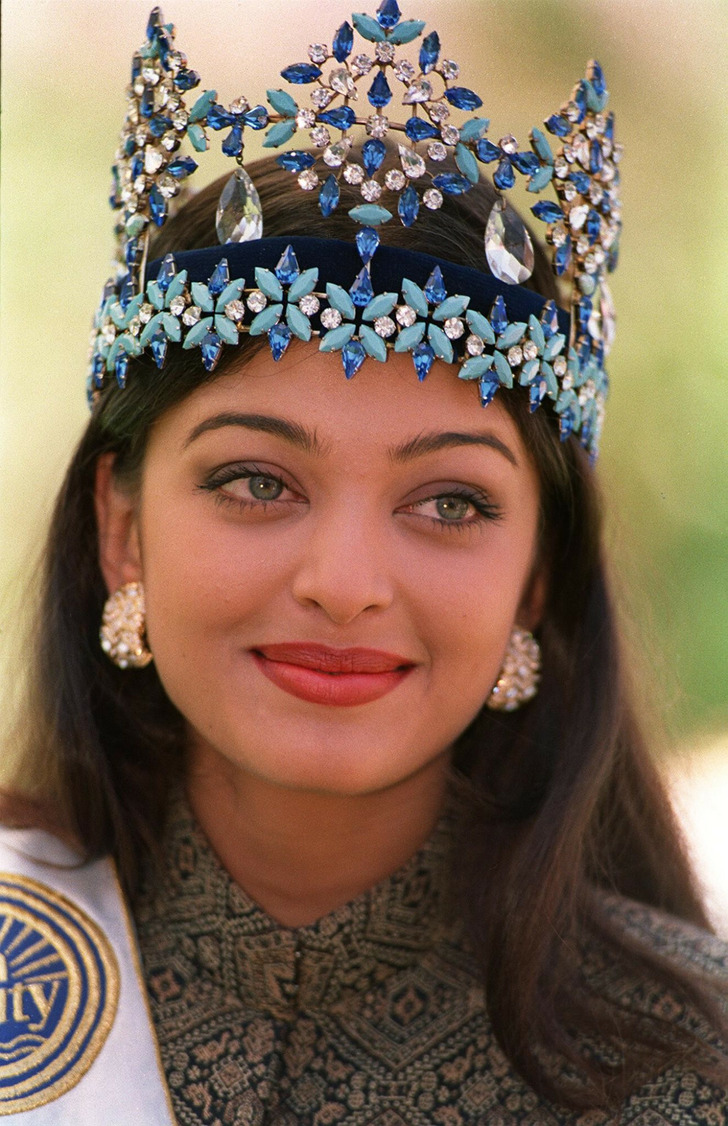
Aishwarya Rai (India), Miss World 1994
In the early 1990s, the popularity of the contest began to decline, and major TV channels stopped broadcasting it. But Morley wasn’t going to give up and managed to find ways to organize the contest at a lower cost.
Yukta Mookhey (India), Miss World 1999
In the second half of the decade, the organizers decided to gather a jury of representatives of different professions from all over the world in order to increase the interest of the audience. So, now beauties were judged by actors and actresses, athletes, magazine editors, and top models from different countries.
2000s: a woman takes the reins.
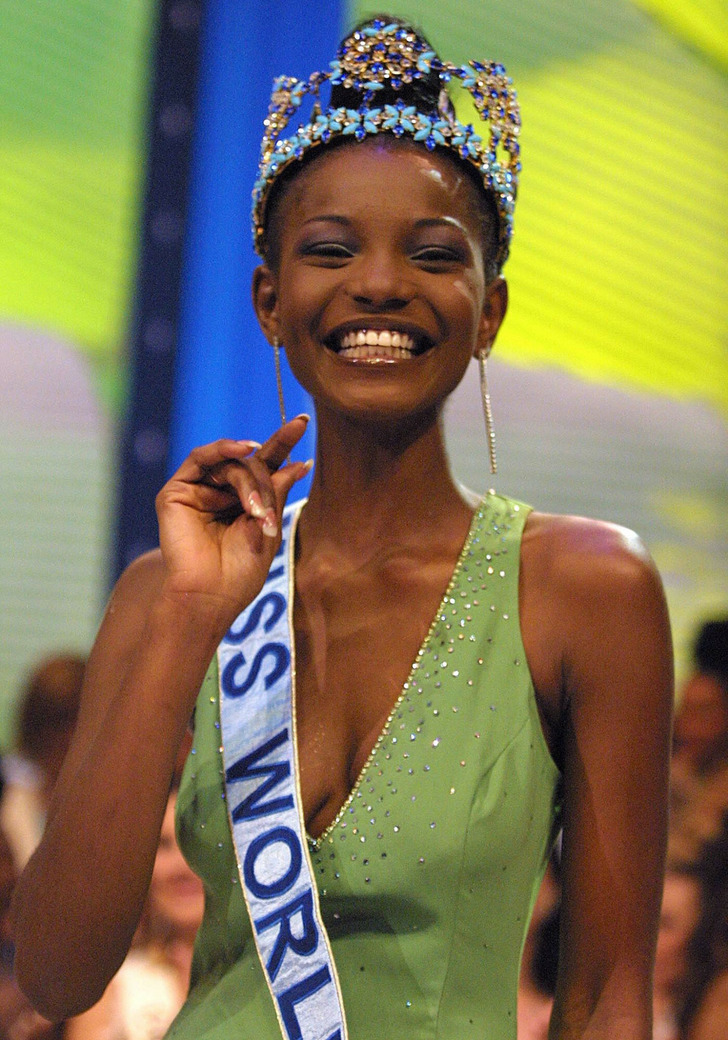
Agbani Darego (Nigeria), Miss World 2001
In 2000, Eric Morley passed away, so his wife Julia took on her husband’s work and decided to make some adjustments. For example, she called the pageant «stupid and horrible» and promised to make it «more positive» for women. She condemned the part of the show where girls had to first parade around in swimsuits and then give interviews about their life ambitions. «Not because I thought there was something wrong, horrible, and unnatural about swimsuits, but I thought you generally don’t feel comfortable if someone is interviewing you in a tux, and you are in a bathing suit,» Julia said.

Rosanna Davison (Ireland), Miss World 2003, and Kaiane Aldorino (Gibraltar), Miss World 2009
In 2004, Julia Morley surpassed her spouse by managing to gather a then record number of participating countries — 107 girls took part in the competition.
2010s: no swimsuits
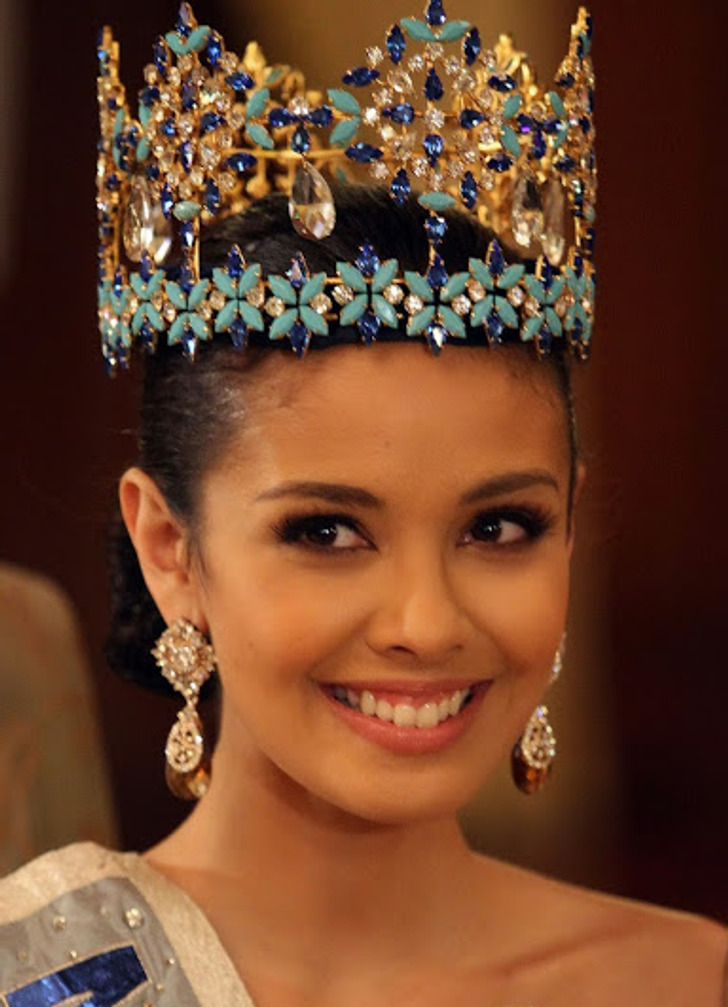
Megan Young (Philippines), Miss World 2013
In 2013, the contestants traveled to Bali. It was the first time the event was held in Southeast Asia. Also, for the first time in the history of the contest, a girl from the Philippines, Megan Young, won the crown.

Manushi Chhillar (India), Miss World 2017
Julia Morley, who had previously voiced her discontent with overly revealing costumes of contestants,
decided to remove the swimsuit competition from the pageant in 2015. She said, «We are really not looking at her bottom. We are really listening to her speak.»
2020s: what’s next?

Karolina Bielawska (Poland), Miss World 2021
The first event of the new decade wasn’t really big. In 2022, the number of countries participating in the contest was the smallest since 2003 — only 97. The winner was Karolina Bielawska from Poland. Next time, the Miss World jury gathered in 2024 and crowned Krystyna Pyszková from the Czech Republic.
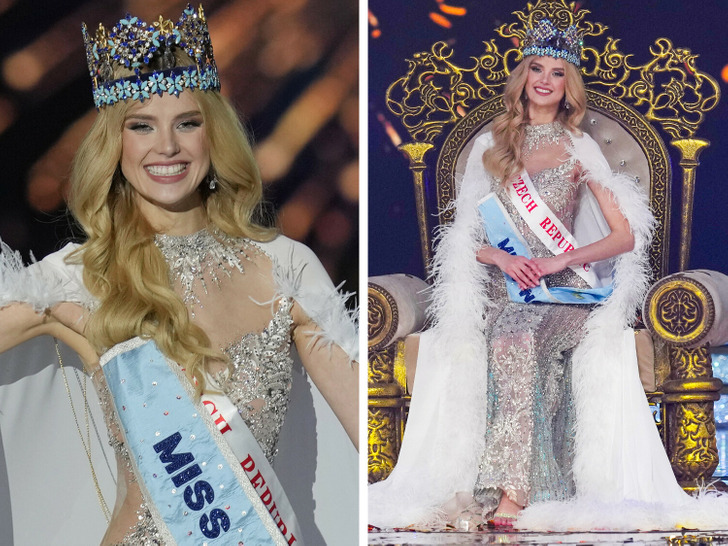
Krystyna Pyszková (Czech Republic), Miss World 2023
Since modern trends criticize various beauty standards, there is a possibility that the Miss World organizers will choose to stop using any selection criteria for future contestants, following the example of Miss Universe. In 2023, the latter removed the upper age limit for contestants. And since Julia Morley suggests that it is personality that should be evaluated, we are sure that changes in the contest are not long to wait.
Speaking about Miss Universe. Here’s what 16 Miss Universe winners look like now.
Preview photo credit Harry Pot / Nationaal Archief / Wikimedia Commons, CC BY-SA 3.0 NL DEED, Historia de la belleza / Wikimedia Commons, EAST NEWS, Rajanish Kakade / Associated Press / East News
My Neighbor Requested My 12-Year-Old Son to Mow Her Lawn, Then Declined to Pay – She Wasn’t Prepared for My Retaliation

Then one day, Ethan came home, sweat dripping from his forehead. His shirt was soaked, and he looked like he’d been running for hours.
“Ethan, what happened?” I asked, walking over to him as he plopped down on the couch.
“Mrs. Johnson asked me to mow her lawn,” he panted. “She said she’d pay me twenty bucks.”
I glanced out the window at Mrs. Johnson’s yard. It was huge, easily the biggest in the neighborhood. Ethan had mowed the entire thing. It looked perfect, lines neat and clean.
“Two days,” Ethan said, wiping his face with his shirt. “It took me two whole days. But she said she’d pay me when I was done.”
I smiled at him, proud. Ethan was a good kid, always looking to help out. He’d been saving up for weeks to buy a food processor for his grandma’s birthday. The twenty dollars would help him get a little closer.
“Did she pay you yet?” I asked, still looking out the window.
“No, but I’m sure she will,” Ethan said, his voice hopeful.
I nodded. Mrs. Johnson might be distant, but stiffing a kid out of twenty bucks? Even she wouldn’t do that. Or so I thought.
A few days passed, and I noticed Ethan was quieter than usual. He wasn’t his usual cheerful self, and it worried me.
“What’s wrong, honey?” I asked one evening as he sat by the window, staring at Mrs. Johnson’s house.
“She hasn’t paid me yet,” he said softly.
I frowned. “Well, have you asked her?”
Ethan nodded. “Yeah, I went over yesterday, but she told me she was busy and to come back later. So I went again today, and she told me… she told me to get lost.”
“What?” I gasped, shocked. “What do you mean ‘get lost’?”
Ethan looked down at his hands, his voice shaking just a little. “She said I should be grateful for the lesson I learned from mowing her lawn. That learning to work hard was the real payment. She said I didn’t need the money.”
My heart dropped, and my anger rose. This woman had tricked my son into doing two days of hard work and then refused to pay him. How dare she?
I clenched my fists, trying to stay calm for his sake, but inside I was boiling. “Don’t worry about it, honey. I’ll take care of it.”
Ethan gave me a small, trusting smile. But inside, I was already planning what I’d do next. Mrs. Johnson might think she was teaching my son a lesson, but she was about to learn one herself.
I sat on the porch the next morning, watching Mrs. Johnson pull out of her driveway, as polished as ever. The decision had been brewing inside me for days, and now, I felt no hesitation.
My son deserved justice, and if Mrs. Johnson wasn’t going to do the right thing, then I’d make sure she learned a lesson of her own. I got to making calls and leaving voice messages.
Around an hour later, my phone buzzed in my pocket. It was Mark, my old friend from high school, who now ran a small landscaping business. I explained the situation in a quick, hushed tone.
“So, you want me to… trim her hedges into weird shapes?” he chuckled on the other end of the line.
Mrs. Johnson took immense pride in her yard, especially her hedges. Every Saturday morning, without fail, she’d be out there, pruning the bushes with meticulous care.
She had them shaped into perfect, symmetrical forms that gave her house a neat, upscale appearance. To her, those hedges weren’t just plants—they were a statement.
“Exactly. Nothing destructive. Just enough to give them a funny look. She’s proud of that yard, and I want her to notice.”
Mark was quiet for a moment, then laughed again. “You’ve got yourself a deal. I’ll swing by later today.”
Step one of the plan was set. Now, for step two. I grabbed my laptop, found a local mulch delivery service, and called them up, doing my best to mimic Mrs. Johnson’s crisp, no-nonsense tone.
“Hi, this is Katherine Johnson. I need three large truckloads of mulch delivered to my address. Yes, the whole driveway. Thank you.”
I hung up, feeling a strange thrill. My heart pounded in my chest. Was I really doing this?
Yes. Yes, I was.
Then, I left a few messages for my neighbors. While asking for small favors, I made sure to casually mention what Mrs. Johnson had done to Ethan.
Later that afternoon, three giant trucks rolled up and began unloading piles of mulch onto Mrs. Johnson’s driveway. I watched from my porch as the workers carefully emptied their loads, blocking her entire driveway with massive mounds of dark brown mulch. There was no way she was getting her car in tonight.
By then, the neighborhood had started to buzz. I saw a few of the neighbors peeking through their windows, whispering to each other. Word had gotten around about what Mrs. Johnson had done to Ethan, and now, they were seeing my revenge unfold right in front of them.
I could feel the tension building. Everyone was waiting for Mrs. Johnson to come home. So was I.
At around 6:30 p.m., her shiny black car turned the corner and pulled onto our street. As soon as she saw the mulch, her car screeched to a halt. She sat there for a moment, probably in shock. Then she slowly rolled forward, coming to a stop in front of the pile blocking her driveway.
I leaned back in my chair, sipping my tea, and waited.
Mrs. Johnson got out of the car, her face a mix of confusion and anger. She marched over to the hedges first, staring at the strange shapes they’d been trimmed into. She ran her hands through her perfectly styled hair and pulled out her phone, probably to call someone to fix it.
A few of the neighbors had gathered across the street, pretending to chat, but really watching her reaction. They exchanged quiet laughs and glances. Mrs. Johnson looked around, realizing she was being watched, and her eyes landed on me.
She stormed across the street, her heels clicking loudly on the pavement.
“Did you do this?” she snapped, her voice tight with rage.
I smiled, taking another sip of my tea. “Me? I don’t know anything about landscaping or mulch deliveries.”
Her face turned bright red. “This is unacceptable! You think this is funny?”
I set down my cup and stood up, meeting her gaze. “Not as funny as stiffing a 12-year-old out of twenty dollars.”
Her mouth opened, but no words came out. She knew exactly what I was talking about.
“Maybe it’s just the universe teaching you a lesson,” I said, my tone sharp. “Hard work is its own reward, right?”
Mrs. Johnson clenched her jaw, her eyes darting from me to the piles of mulch and then back to the small crowd of neighbors now openly watching. She was trapped. She couldn’t argue with me without looking worse in front of the whole street.
“Fine,” she spat, turning on her heel and stomping into her house. A minute later, she reappeared with a crumpled twenty-dollar bill in her hand.
She shoved it at me, but I didn’t take it. “Give it to Ethan,” I said, stepping aside.
She shot me one last glare, then walked over to where Ethan stood at the edge of the yard. “Here,” she muttered, shoving the bill at him.
Ethan took the money, eyes wide with surprise. “Uh, thanks.”
Mrs. Johnson didn’t say another word as she hurried back to her car. She fumbled with her phone, probably trying to call someone to remove the mulch blocking her driveway. But I wasn’t worried about that. My job was done.
Ethan smiled so wide, I thought his face might split in two.
“Thanks, Mom,” he said, beaming.
“Don’t thank me,” I said, ruffling his hair. “You earned it.”
Mrs. Johnson never asked Ethan for help again. And every time she passed the neighbors, I could see the embarrassment in her eyes. Her hedges grew back, and the mulch eventually disappeared, but the story of how she learned a lesson about honesty and hard work stayed with the neighborhood.
Sometimes, the people who seem the most put-together are the ones who need a good reminder that you don’t mess with a mother protecting her son.


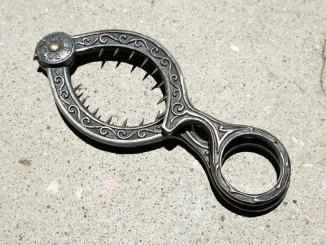
Leave a Reply